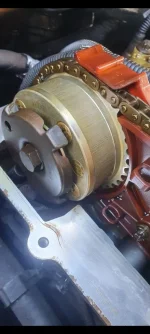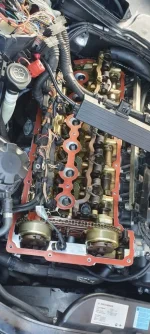I've seen it a lot on the F150 Boards over the lsst decade. Guys tried to out OCI the fuel dilution in the Ecoboost and found it tracks with operating conditions not OCi length. They would shorten the OCI and think they had accomplished sometimg only to shorten it even farther and go right back where it was.That said I'm talking about a few percent, not a Honda 1.5T that is "making oil" to the point its pumping it out the dipstick.Sounds like you've seen some analyses like that. Can you link to them or post them here? It would be a great help and a worthwhile addition to this discussion.
You can prove it to yourself. Next time you make several short trips from a cold start the next morning pull the dipstick out and smell it. It will reek of gas. Then the next time you make a decent length highway trip pull it out the next morning and smell it. The gas smell will be minimal in comparison. That regardless of the OCI length.




